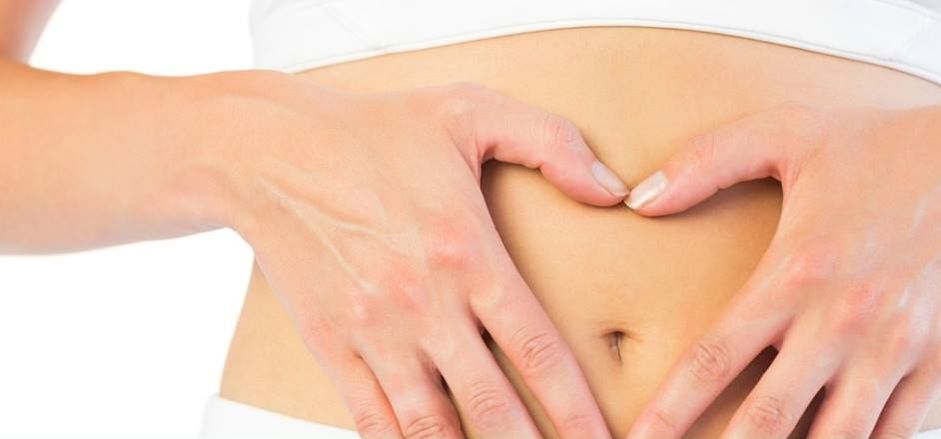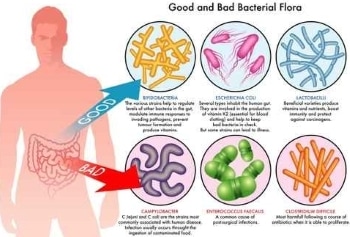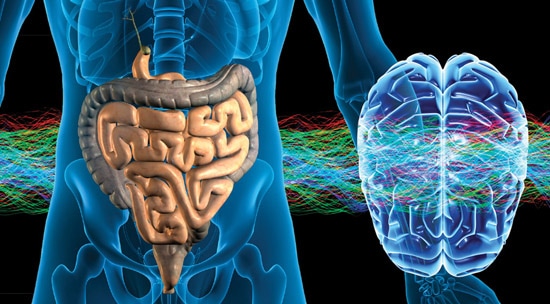Did you know that our digestive systems are intimately linked to our immune, endocrine, circulatory, and central nervous systems? Pretty amazing, huh? Our digestive system profoundly affects all of these interlocking systems with an amazing world of beneficial bacteria: the microscopic "good guys" that must be present in your intestines for you to be healthy. The health of your gut determines what nutrients are absorbed and what toxins, allergens and microbes are kept out, and therefore it is directly linked to the health of your total body.
“All disease starts in the gut.”
-Hippocrates
Hippocrates (Father of Modern Medicine) said this more than 2,000 years ago, but we’re only now coming to understand just how right he was. Research over the past two decades has shown us that gut health is critical to overall health, and that an unhealthy gut contributes to a wide range of diseases including diabetes, obesity, rheumatoid arthritis, autism spectrum disorder, depression and chronic fatigue syndrome.
More and more, science is finding that tiny creatures living in your gut have a definite purpose. Known as your microflora, or microbiome (MIKRO-by-ome), these bacteria populate your body, particularly your intestines and other parts of your digestive system.
The human body carries about 100 trillion microorganisms in its intestines, a number ten times greater than the total number of human cells in the body.
In fact, 90 percent of the genetic material in your body is not yours, but rather that of bacteria, fungi, viruses and other microorganisms that compose your microflora. The human body contains over 10 times more microbial cells than human cells with over 400 known diverse bacterial species. Our microbiome can weigh somewhere between 3 and 5 pounds! In fact, you could say that we’re more bacterial than we are human! Whoa… that’s really something to think about.
Although some of the bacteria living in our gut are bad, the majority are good, and they work together to help your digestive system and keep you well. Beneficial bacteria, also known as probiotics, along with a bunch of other microorganisms, can influence your:
- genetic expression
- immune system
- brain development, mental health, and memory
- weight
- hormones
- risk for illness and disease (such IBS, diabetes, cancer, autism, depression, and anxiety)
Did you know that your gut is sometimes referred to as your second brain?
Yep! Your gut is like a nervous system. In fact, it contains more neurotransmitters than your brain, and is where 95% of your serotonin is produced! It is highly wired back to your brain where intricate messages travel back and forth. When those messages are altered for any reason in any direction – from the brain to the gut or the gut to the brain – your health will suffer.
Even in a perfect world, our gut has a hard time keeping things balanced. But in our modern world, there are many things that make our digestive system off balance.
Here are some common things that can damage our digestive system:
More than 100 million Americans have digestive problems, so it is highly likely that you are suffering from things like irritable bowel syndrome (IBS), bloating, constipation, diarrhea, heartburn, reflux, gas, or more. As a health coach, almost all of my clients came to me complaining of some type of gut issue, so if you’re suffering, you’re not alone!
Even in a perfect world, our gut has a hard time keeping things balanced. But in our modern world, there are many things that make our digestive system off balance.
Here are some common things that can damage our digestive system:
- A low fiber, high sugar, processed food, nutrient poor, high calorie diet feeds all the wrong bacteria and yeast in the gut leading to a damaged ecosystem and an overgrowth of harmful bacteria. This condition is known as dysbiosis.
- Overuse of medications that damage the gut or block normal digestive function – things like anti-inflammatories, antibiotics, acid blocking drugs, and steroids.
- Chronic low-grade infections or gut imbalances with overgrowth of bacteria in the small intestine, yeast overgrowth, parasites, or even more serious gut infections.
- Toxins damage the gut such as chemicals, heavy metals like mercury, and mold toxins.
- Lack of adequate digestive enzyme function – which can come from acid blocking medication use or zinc deficiency.
- Stress can alter the gut nervous system causing a leaky gut and changing the normal bacteria in the gut.
More than 100 million Americans have digestive problems, so it is highly likely that you are suffering from things like irritable bowel syndrome (IBS), bloating, constipation, diarrhea, heartburn, reflux, gas, or more. As a health coach, almost all of my clients came to me complaining of some type of gut issue, so if you’re suffering, you’re not alone!
Create a Healthy Gut
In order to experience vibrant health, you must have a healthy, strong, and effective digestive system. Chances are if you have a leaky gut or some type of autoimmune disease, digestive problems, headaches, joint pain, unbalanced hormones, skin problems, weakened immune system, or other ailments, then you probably have unbalanced or weak gut flora. Rebuilding healthy gut flora and restoring the integrity of your intestinal barrier is critical if you want to be truly healthy.
The most obvious first step in maintaining a healthy gut is to support a healthy gut flora and avoid damage the intestinal barrier. But of course, that’s not always possible, especially in the case of chronic stress and infections. Sometimes rebuilding a weak, damaged, or inflamed digestive system is necessary.
Gut rebuilding is indeed possible but takes time and patience! Here are just a few simple but important steps you can take to begin restoring your digestive system:
The most obvious first step in maintaining a healthy gut is to support a healthy gut flora and avoid damage the intestinal barrier. But of course, that’s not always possible, especially in the case of chronic stress and infections. Sometimes rebuilding a weak, damaged, or inflamed digestive system is necessary.
Gut rebuilding is indeed possible but takes time and patience! Here are just a few simple but important steps you can take to begin restoring your digestive system:
- Properly chew your food and don’t overeat (food should be liquefied before swallowing)
- Reduce inflammation and remove all food toxins, intolerances, and sensitivities from your diet
- Maximize your digestive capacity using natural methods or supplement with HCL acid and digestive enzymes
- Eat plenty of fermentable fibers (starches like sweet potato, yam, yucca, etc.)
- Try the principles of Food Combining
- Reconsider eating grains and other foods containing phytic acid
- Eat fermented foods like kefir, coconut yogurt, sauerkraut, kimchi, etc., and/or take a high quality, multi-species probiotic
- Take steps to manage your stress (stress kills off the "good guys")
Try this super simple gut healing recipe:
EASY COCONUT YOGURT
Makes 2 Servings
1 can full-fat coconut milk (BPA-free can)
1 probiotic capsule (at least 50 billion)
1 glass jar with lid (sterilized)
PREPARE YOUR CANNED COCONUT MILK. Keep the coconut milk at room temperature for about an hour while it is still in the can so that the fat chunks are soft.
ADD PROBIOTICS TO COCONUT MILK. Remove the coconut milk from the can, and place it in a sterilized jar. Add the contents of the probiotic capsule. Mix the contents well, and tightly close the jar.
INCUBATE YOUR YOGURT. Place your jar of coconut milk in the oven with the light on and tightly close the door. Do not turn the oven on. A closed oven with the light on generates heat of about 105 to 110° Fahrenheit. Incubate your yogurt for up to 24 hours.
Makes 2 Servings
1 can full-fat coconut milk (BPA-free can)
1 probiotic capsule (at least 50 billion)
1 glass jar with lid (sterilized)
PREPARE YOUR CANNED COCONUT MILK. Keep the coconut milk at room temperature for about an hour while it is still in the can so that the fat chunks are soft.
ADD PROBIOTICS TO COCONUT MILK. Remove the coconut milk from the can, and place it in a sterilized jar. Add the contents of the probiotic capsule. Mix the contents well, and tightly close the jar.
INCUBATE YOUR YOGURT. Place your jar of coconut milk in the oven with the light on and tightly close the door. Do not turn the oven on. A closed oven with the light on generates heat of about 105 to 110° Fahrenheit. Incubate your yogurt for up to 24 hours.
Want to learn more about gut health and how to improve it?
Sign up for my FREE 7-Day online digestive health mini-program,
How to Create a Healthy Gut for Life
What you'll learn:
- Why good digestion is vital for good health
- Organs and systems involved in human digestion
- How a poor digestive system is making you bloated, sick, wrecking your skin, aging you, and packing on the pounds
- Are you even absorbing nutrients from your food?
- Critical steps you need take in order to create and support a healthy gut for life
Get started today!
(For a limited time only)
(For a limited time only)





 RSS Feed
RSS Feed